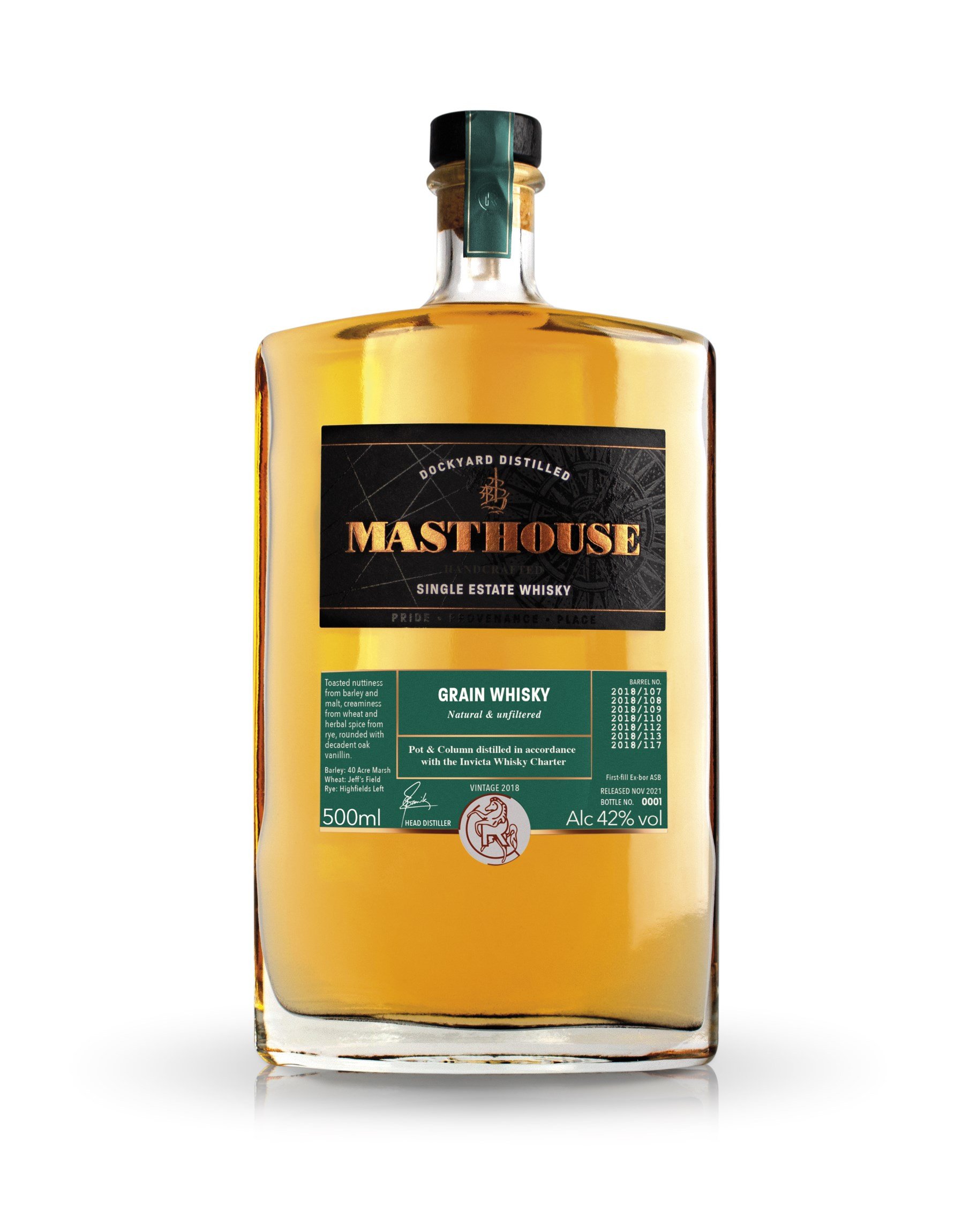
English Grain Whisky
Grain whisky, often associated with the extensive and industrialised production methods of Scotland, has begun to carve a boutique niche in England. As the English whisky sector rises in prominence, several distillers are embracing grain whisky, elevating its status through an artisanal approach. English grain whisky producers like The London Distillery Company, situated in England's bustling capital, pride themselves on craftsmanship. They're taking a novel approach by distilling their grain whisky in traditional pot stills, a departure from the Scottish use of column stills for grain whiskies. This London-based distillery, by employing different grains like rye and oats, is challenging and expanding traditional grain whisky profiles.
Another notable name is The Cotswolds Distillery. While they've made a name for themselves with single malt, they've also ventured into grain whisky. Their approach is meticulous, leaning towards quality rather than sheer volume. This emphasis on quality allows whisky enthusiasts to trace every ingredient back to its source, accentuating the importance of terroir in whisky production. Adnams, originally a brewery that transitioned into distillation, offers a grain whisky that's distilled from East Anglian barley. The innovative spirit of their Copper House distillery often pushes the boundaries, as they experiment with various grains to introduce a myriad of flavours.
When comparing the English and Scottish grain whisky production, several differences come to the fore. The scale of production is the most evident contrast. Scottish grain whisky, with its massive demand for blends, sees distilleries like Cameronbridge churning out millions of litres every year. In stark contrast, English counterparts, with their smaller setups, might only produce a few thousand litres, underlining their focus on craftsmanship and quality. Another difference lies in the equipment. Scottish grain whiskies typically employ column stills, designed for continuous distillation on a large scale. In England, while some do use column stills, there's a preference among others for pot stills, which are traditionally used for malt whisky, imparting a richer flavour profile. The choice of grain also varies. While maize or wheat dominates the Scottish grain whisky landscape, English distillers aren't shying away from experimenting with grains like rye, oats, and various barley strains, leading to a broader flavour spectrum.
Maturation, a crucial phase in whisky production, sees variations too. Scotland's cool and damp climate has a unique influence on the spirit, while England's more varied climate, from its maritime influences to more continental aspects, offers a different ageing profile, which in turn nuances the spirit in its unique way. In wrapping up, it's clear that English grain whisky is making its mark. It's not about overshadowing the established Scottish legacy but about creating its own space. The emphasis on quality, innovation, and the deep-rooted connection to local ingredients provides whisky aficionados a fresh and intriguing perspective in the revered world of grain whisky.
Another notable name is The Cotswolds Distillery. While they've made a name for themselves with single malt, they've also ventured into grain whisky. Their approach is meticulous, leaning towards quality rather than sheer volume. This emphasis on quality allows whisky enthusiasts to trace every ingredient back to its source, accentuating the importance of terroir in whisky production. Adnams, originally a brewery that transitioned into distillation, offers a grain whisky that's distilled from East Anglian barley. The innovative spirit of their Copper House distillery often pushes the boundaries, as they experiment with various grains to introduce a myriad of flavours.
When comparing the English and Scottish grain whisky production, several differences come to the fore. The scale of production is the most evident contrast. Scottish grain whisky, with its massive demand for blends, sees distilleries like Cameronbridge churning out millions of litres every year. In stark contrast, English counterparts, with their smaller setups, might only produce a few thousand litres, underlining their focus on craftsmanship and quality. Another difference lies in the equipment. Scottish grain whiskies typically employ column stills, designed for continuous distillation on a large scale. In England, while some do use column stills, there's a preference among others for pot stills, which are traditionally used for malt whisky, imparting a richer flavour profile. The choice of grain also varies. While maize or wheat dominates the Scottish grain whisky landscape, English distillers aren't shying away from experimenting with grains like rye, oats, and various barley strains, leading to a broader flavour spectrum.
Maturation, a crucial phase in whisky production, sees variations too. Scotland's cool and damp climate has a unique influence on the spirit, while England's more varied climate, from its maritime influences to more continental aspects, offers a different ageing profile, which in turn nuances the spirit in its unique way. In wrapping up, it's clear that English grain whisky is making its mark. It's not about overshadowing the established Scottish legacy but about creating its own space. The emphasis on quality, innovation, and the deep-rooted connection to local ingredients provides whisky aficionados a fresh and intriguing perspective in the revered world of grain whisky.
Price
Advanced Search
Age in years
All
Bottling year
All
Vintage
All
Alcohol by volume
All
Categories
Distilleries & brands
Style
User rating
Bottle size
Countries


















